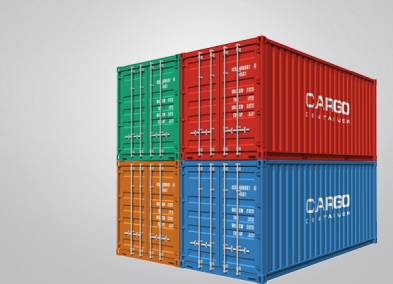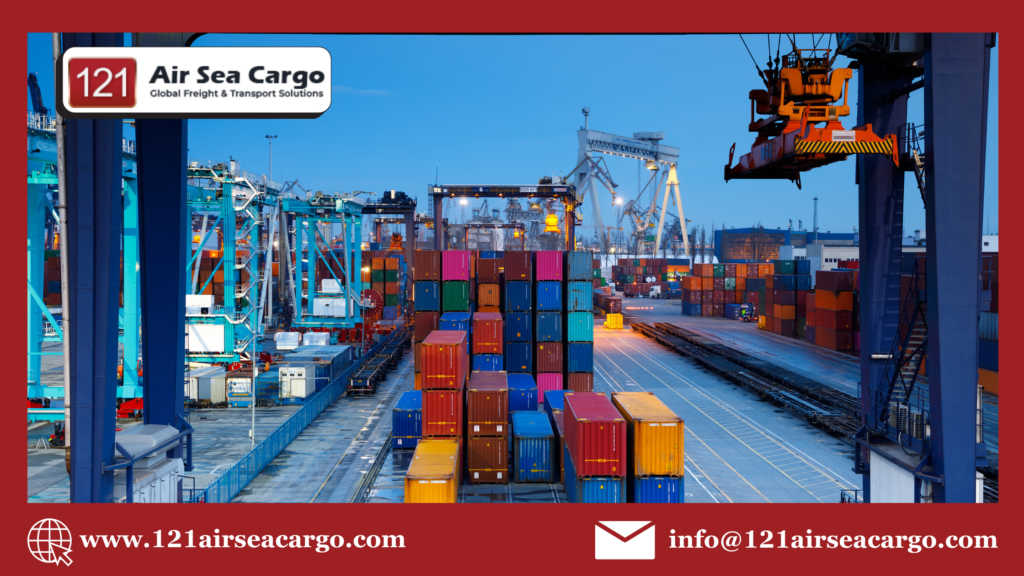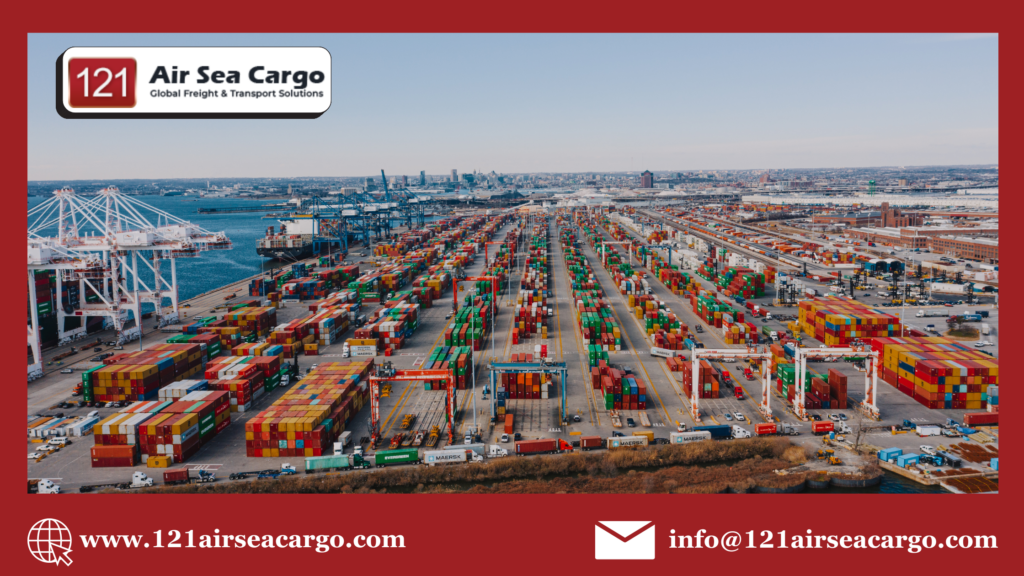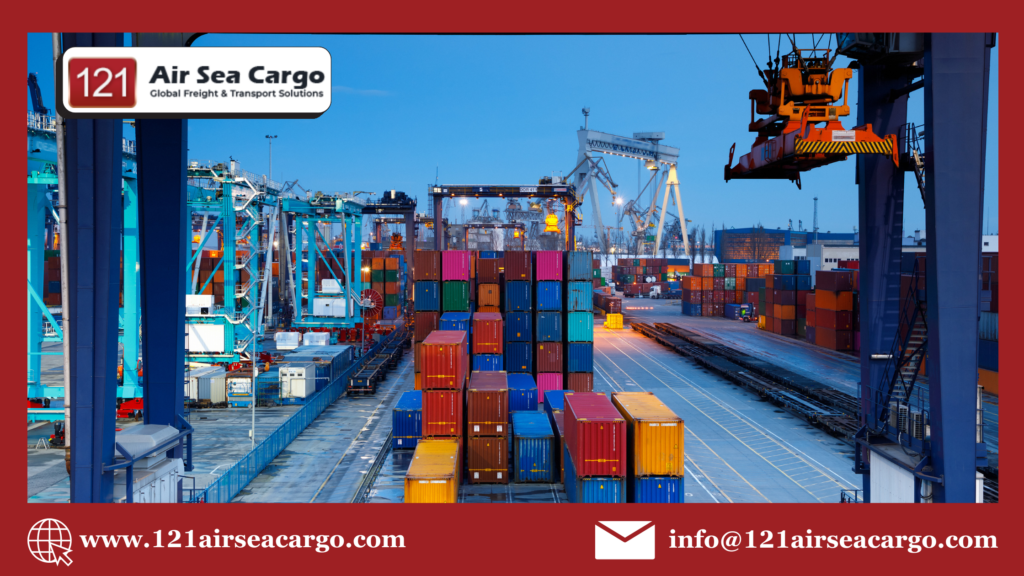
The global trade landscape is vast and intricate, with many moving parts working behind the scenes to ensure goods reach their destinations efficiently. One such crucial link is the Container Freight Station (CFS). Whether you’re a business sending goods overseas or someone curious about how imports and exports work, understanding the role of CFS facilities can shed light on how shipments stay organised, timely, and compliant.
1. What is a Container Freight Station?
Think of a CFS as a nerve centre where cargo is meticulously processed, consolidated, or broken down for shipment. Unlike a seaport where vessels dock and unload, a CFS is designed to manage what happens before or after the containers leave the ship.

Here’s how a CFS operates:
- Import Processing: Containers arriving from abroad are unloaded and their contents sorted for individual delivery.
- Export Processing: Small consignments from different exporters are grouped together to form full containers, making the journey more economical.
2. Key Functions of a CFS
A CFS handles multiple activities, ensuring shipments flow seamlessly between ports and final destinations:
- Consolidation: Smaller consignments (LCL — Less than Container Load) are combined into one full container to optimise space and cost.
- Deconsolidation: Full containers (FCL — Full Container Load) are opened, and their contents are separated for delivery to various destinations.
- Cargo Storage: Goods may be held temporarily in secure areas while waiting for customs clearance or onward transport.
- Customs Coordination: The station facilitates inspections, ensuring that documentation and cargo meet regulatory requirements.
- Loading and Unloading (Stuffing and Stripping): Cargo is efficiently packed into or unpacked from containers, depending on its shipping stage.
3. Types of Goods Handled at CFS
A wide variety of goods pass through CFS facilities daily. Here’s a breakdown of some common types:
- Retail and Consumer Goods: Items such as home appliances, clothing, and electronics.
- Fragile Cargo: Goods like glassware or ceramics, which require careful handling.
- Temperature-Controlled Goods: Perishable items that may need climate-controlled zones like pharmaceuticals, fruits and vegetables, frozen seafoods and meats, etc.
Each CFS may have specialised areas and protocols for handling specific types of goods.

4. Why Location is Key
CFS facilities are almost always situated close to major seaports, airports, or inland hubs. This strategic placement reduces the time needed for transferring goods between ships and warehouses. In the UK, for instance, ports like Felixstowe and Southampton benefit from nearby CFS hubs that support smooth cargo processing.
5. Why Are Container Freight Stations Important?
CFS facilities contribute significantly to the logistics ecosystem by offering:
- Efficiency for Small Shippers: Businesses shipping smaller quantities don’t need to rent an entire container, thanks to consolidation services.
- Simplified Customs Procedures: Customs checks are often quicker at a CFS, as the facility is equipped to manage inspections and paperwork.
- Cost-Saving Measures: Consolidating goods into shared containers reduces shipping costs for small exporters.
- Flexible Logistics: Shipments can be processed and stored as needed, allowing businesses to align their schedules without rushing.
6. Comparing CFS with Inland Container Depots (ICD)
Though both CFS and ICDs streamline cargo movement, they serve different purposes:
| Container Freight Station (CFS) | Inland Container Depot (ICD) |
| Close to ports and airports | Located inland, away from ports |
| Handles both LCL and FCL shipments | Primarily focuses on FCL shipments |
| Focuses on customs clearance and cargo handling | Focuses on long-term storage and inland transportation coordination |
7. Evolving Operations: Digital Enhancements
Many CFS facilities are embracing digital tools to stay competitive and improve efficiency:
- Electronic Documentation: Digital systems expedite customs processing and reduce paperwork errors.
- Real-Time Tracking: Customers can monitor their cargo through tracking systems, increasing visibility.
- Automation: Advanced loading equipment and automated sorting systems help speed up operations.
These improvements enhance transparency and reduce operational bottlenecks.

8. Common Challenges Faced by CFS Operators
Despite their importance, CFS facilities encounter some hurdles:
- Congestion During Peak Seasons: The holiday period and sudden surges in demand can strain resources.
- Regulatory Changes: Adapting to shifting import/export regulations requires constant updates and process improvements.
- Infrastructure Gaps: Outdated systems or limited storage space can lead to delays in cargo movement.
To combat these issues, many facilities are upgrading their infrastructure and investing in staff training.
9. What Lies Ahead: Future of CFS Operations
The logistics landscape is evolving rapidly, and CFS operations are adapting to new demands:
- Predictive Analytics: AI-based systems are being used to forecast cargo flows and prevent delays.
- Sustainable Practices: Facilities are incorporating green initiatives like solar energy and electric-powered machinery.
- Enhanced Security Protocols: Blockchain technology is being trialled to secure shipping records and minimise fraud.

10. Final Thoughts
Container Freight Stations play an indispensable role in global logistics, particularly for businesses handling smaller shipments. By facilitating the movement of goods, managing customs processes, and supporting flexible shipping schedules, CFS facilities keep global trade running smoothly. As the industry evolves, these stations are adopting innovative solutions to stay efficient, transparent, and sustainable.
About Author:
With over 10 years of expertise, 121 Air Sea Cargo Ltd delivers unmatched reliability in global shipping. Our proven track record in air and sea freight ensures speed, security, and precision for every shipment. Businesses trust us for tailored logistics solutions, cutting-edge tracking, and seamless delivery worldwide. Choose us for excellence in handling your shipping needs with professionalism and care.
For more information, please visit Our office directly.
121 Air Sea Cargo Ltd (UK)
Place: 18-24 Brighton Road Croydon, Surrey, CR2 6AA
Phone: +44 (0) 20 8313 1777/+44 7931 471653
Email: info@121airseacargo.com
121 Air Sea Cargo Services Co LLC (Dubai)
Place: Unit 25, Dubai Industrial City, Dubai, United Arab Emirates
Phone: +971 (0) 50 425 1255/+971 (0) 56 938 4480
Email: info@121airseacargo.com

